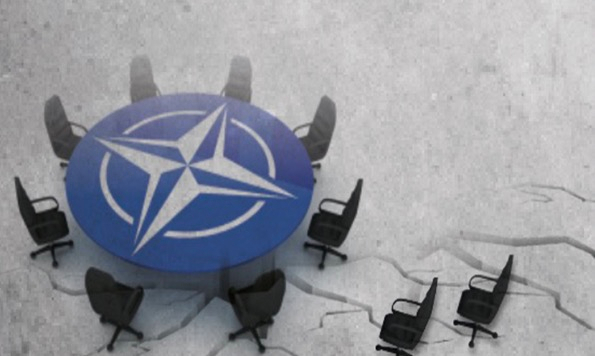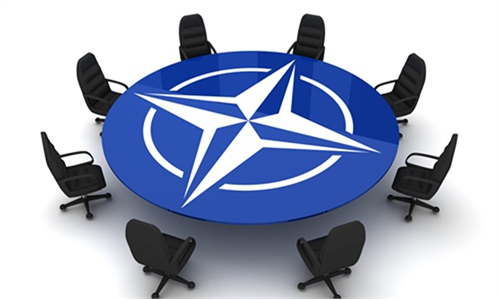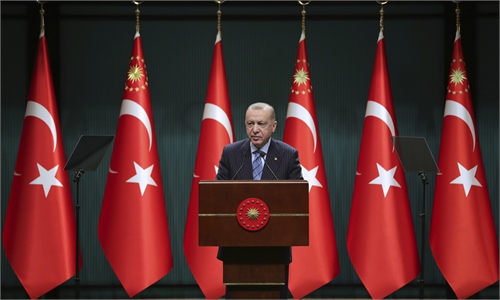NATO kicks off drills in Stockholm with prospective members, endless expansion casts shadow over global security

NATO
Two days after the Russia-Ukraine military conflict passed 100 days, 14 NATO countries kicked off the BALTOPS exercise in the Baltic Sea on Sunday along with prospective members Sweden and Finland, whose participation is "not unprecedented" but is seen by observers as having a different meaning given the vastly changed security landscape in Europe.
NATO's northward expansion worsened the division in Europe and risked turning the continent into powder keg again, while Chinese observers saw a strong US-led trend of NATO Asianization and globalization, potentially challenging the status of the UN, which should play a leading role in global security.
Some 40 warships from NATO member countries on Saturday arrived in the Swedish capital Stockholm for the Sunday drills. Swedish Defense Minister Peter Hultqvist told reporters what is happening in the region is "new cold war" or a "new iron curtain," and NATO countries are sending a signal about the security of the region through the ships gathered in Stockholm, according to the Anadolu Agency.
About 45 ships, 75 aircraft and around 7,000 military personnel will participate in the exercise from June 5-17. This year's BALTOPS exercise is led by US Sixth Fleet.
Top US General Mark Milley said Saturday that the US is determined to support Sweden and Finland as the countries pursue NATO membership, as he visited the USS Kearsarge after it became the largest US warship ever to dock in Stockholm, France24 reported.
The US has been active in seeding conflict and widening divisions in Europe, because when there are higher risks of a crisis, Europe will be more dependent on NATO. The playing out of the conflict fully demonstrates how the US consolidates and pushes for expansion of the NATO, a Beijing-based expert on international relations told the Global Times on condition of anonymity.
The line of division in Europe has been pushed eastward in the past decades and northward with Sweden and Finland's applications for NATO membership, which further compresses Russia's strategic space, the expert said.
Finland shares a 1,300-kilometer border with Russia while Sweden's geographical location enables it to take Russia's Baltic Fleet by the throat and hinder it from entering the Atlantic.
The anonymous expert also noted that after Sweden and Finland, more countries holding a middle stance could reconsider their security policies and follow suit, breaking the past landscape in Europe which has NATO members, partners and neutral states.
Sweden and Finland will not be the end of NATO expansion, but rather a new start, observers predicted, noting it is worrisome that the military alliance may engage more with Asia-Pacific and transform into a global bloc.
South Korea, which is far from NATO's reach in traditional understanding, has just jointed an intelligence branch under NATO. Japan, along with Australia, New Zealand and South Korea are invited to the NATO summit in late June as its partners in the Asia-Pacific region.
The Beijing-based expert called for caution as the situation gives rise to many questions: Will NATO finally grow into a behemoth that challenges the UN-centered global order? What does that scenario mean for China's development and growth? How should China deal with a mounting NATO presence and possible pressure on China?
Many uncertainties remain to be seen, the expert warned.


